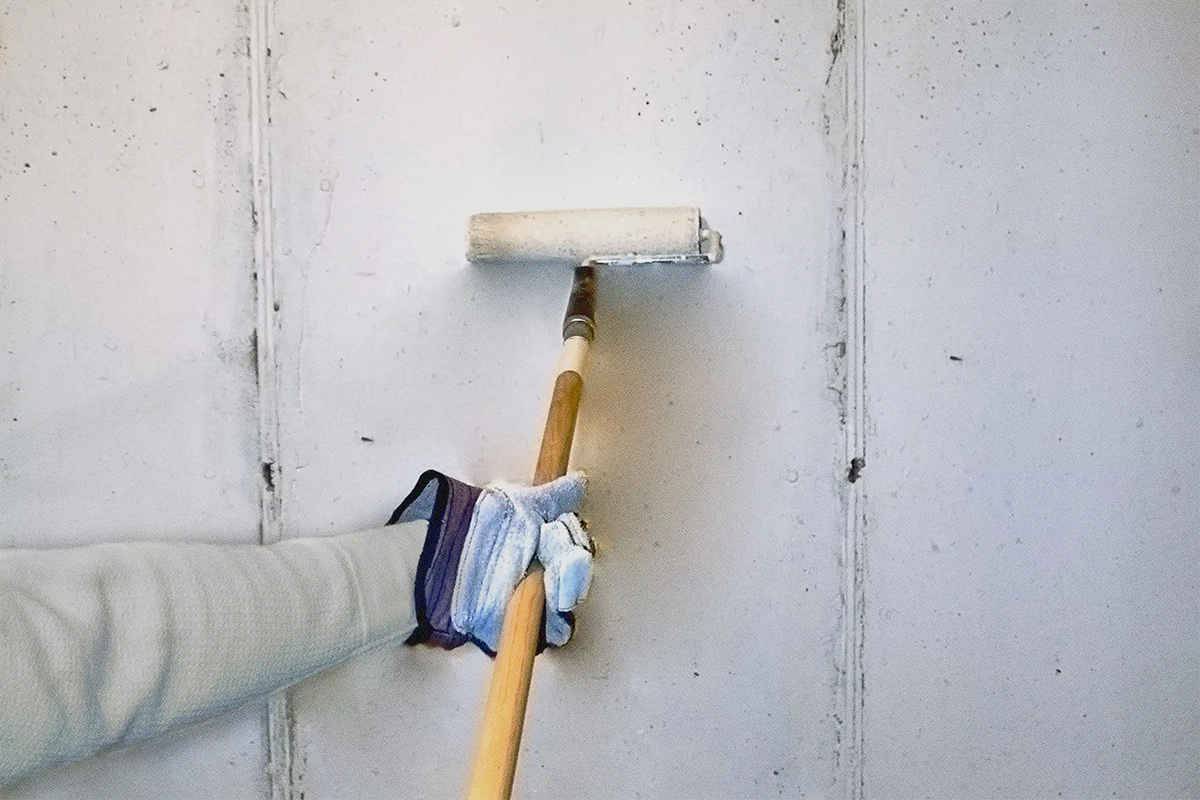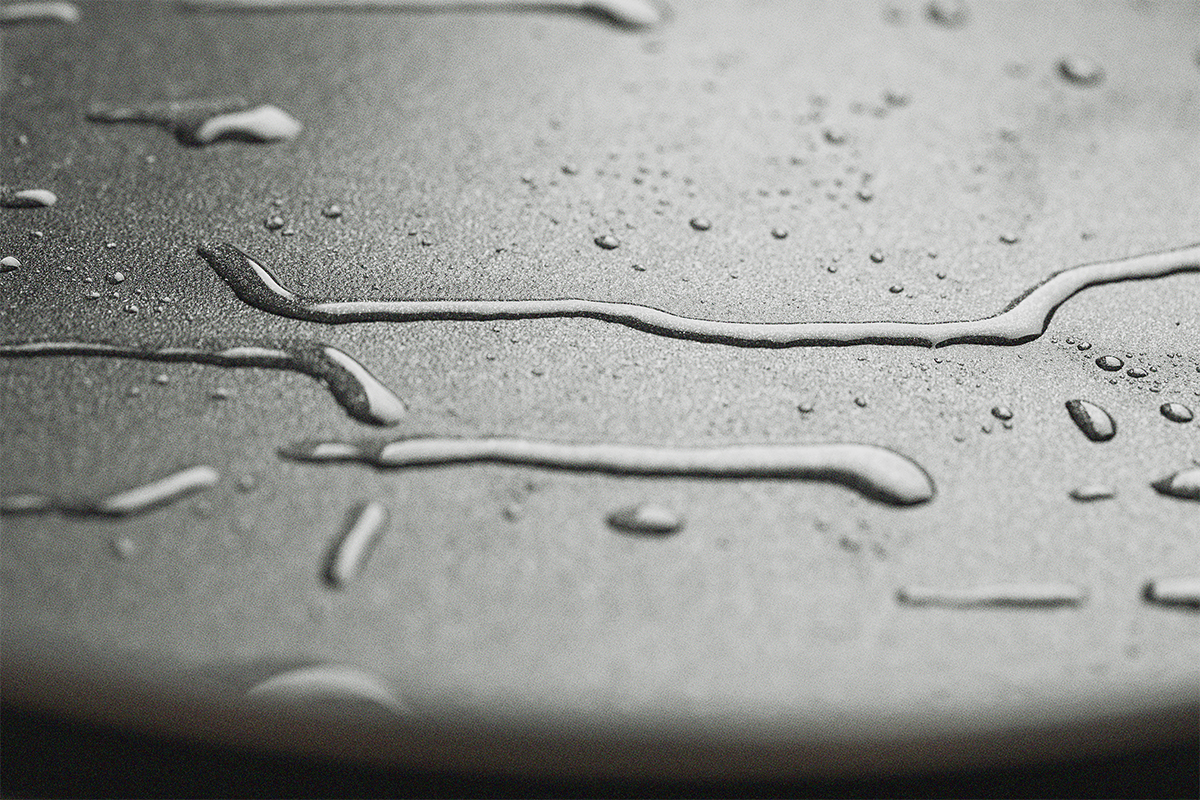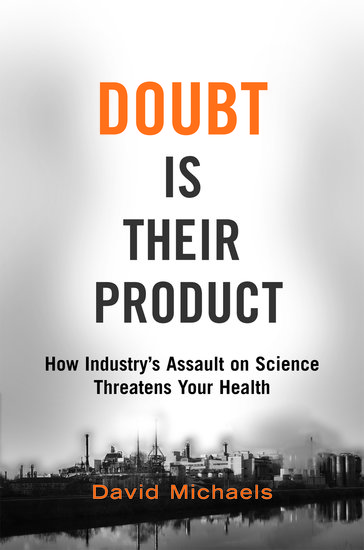 READ HABITABLE’S NEW REPORT
READ HABITABLE’S NEW REPORT
Asthma is a complex, heterogeneous disease, often of multifactorial origin. The Centers for Disease Control (CDC) reported that the number of people diagnosed with asthma grew by 4.3 million during the last decade. Nearly 26 million people are affected by chronic asthma, including over eight million children.
Among asthma risk factors, health organizations have identified hundreds of substances that can cause the onset of asthma. Many of these asthmagens are common ingredients of building products like insulation, paints, adhesives, wall panels and floors. This paper identifies asthmagens found in building products, how people can be exposed to these substances, and what is known and yet-to-be known about the impacts of these exposures.

Asthma rates in the United States have been rising since at least 1980. Today, nearly 26 million people are affected by chronic asthma, including over eight million children. These rates are rising despite the proliferation of asthma control strategies, including indoor air quality pro- grams. The Centers for Disease Control (CDC) reported that the number of people diagnosed with asthma grew by 4.3 million during the last decade from 2001 to 2009.
As asthma affects more people, it becomes increasingly clear that new strategies need to be considered, focusing on the prevention of asthma onset. Few strategies are in place that effectively prevents exposure to chemi- cals that cause asthma. Due to the complexity of this condition conventional efforts have largely focused on asthma management. Health organizations have identified a number of chemicals that are known to cause the onset of asthma, and are therefore labeled asthmagens. Since these chemicals are common ingredients of many interior finishes, like floors, carpets, and paints, it is possible to improve asthma prevention strategies by reducing or eliminating these chemicals from building materials. The Healthy Building Network (HBN) took a three-pronged approach that examined how pervasive asthmagen chemicals are in the built environment, what steps have been taken to address them, and what further actions are needed.
Many years after Kermit told us of the difficulty of being green, a friend put it another way. “Penny, it’s hard to be you.” She wasn’t slamming me but rather commenting on the burden of being knowledgeable – an appreciation of sorts.
Here’s what happened. While shopping in a grocery store my friend reached for a can of soup. I advised her instead to buy soup packaged in glass containers or boxes because of the bisphenol-A, or BPA, that is widely used in the linings of metal cans.
BPA, an endocrine disruptor, has been linked to an increased risk of cancer, birth defects, diabetes and other health threats. After a decade of research that convinced many retailers to remove BPA containing baby bottles and other plastic food containers from their shelves, a new study from researchers at the Harvard School of Public Health reported large increases in BPA levels in humans after eating just modest amounts of canned soup.
The results of this study surprised the researchers and will undoubtedly lead to further investigation. (Side note: Campbell Soup, the world’s largest soup maker announced it will soon stop using BPA in the linings of its cans.) And it’s not just soup cans. BPA and other endocrine disruptors are found in many products – thermal paper receipts, dental sealants, plastic water bottles and yes, building materials.
Typically they are found in epoxy-based products such as coatings, sealers, adhesives and fillers. As designers and specifiers it is our responsibility to find safer alternatives for BPA-containing products. Low-VOC water-based paints, for example, are BPA-free. But how do you know, and how do you know you’re supposed to know?
My point is this: it’s hard being me and it’s hard being you. I have plenty of cans in my pantry, some of them surely containing BPA in the liners. But just as I can choose to limit the number of canned foods I buy or search for those that are safer, so can we purposely and stridently refuse to specify materials with BPA and other known toxins into our projects.
There is a Chinese proverb that says, if we do not change our direction, we are likely to end up where we are headed. When ignorance ends, negligence begins and its antidote is responsibility. Making the choice to educate ourselves and then act on our newfound knowledge is the ethical obligation of every one of us.

Arlene Blum is a biophysical chemist, author and mountaineer.
She is the founder and executive director of the Green Science Policy Institute which works with scientists, government, industry, and non-profits to facilitate more informed decision-making about flame retardants and other chemicals used in consumer and building products.
Healthy Building Network founder Director Bill Walsh caught up with Elaine, recording the following conversation:
Bill Walsh:
How did you get started working on flame retardants?
Arlene Blum:
Thirty years ago, as a researcher at the University of California, Berkeley, I published a paper in Science magazine showing that “Tris” flame retardants in children’s sleepwear caused mutations, were possible cancer hazards, and migrated from pajamas into children. The flame retardants were removed from children’s sleepwear in 1977, but chlorinated tris is now back in use in foam in furniture and other products.
BW:
Why are you so concerned about flame retardants in building materials?
AB:
If a building contains halogenated flame retardants in the insulation, they can filter into the building throughout its life and also form toxic dioxins if the building burns.
I know it’s a real dilemma for people when they learn that plastic insulation materials, such as polystyrene, polyisocyanurate, and polyurethane, that can help reduce climate change, often contain flame retardants which can cause serious health and environmental harm. But the good news is that this is a problem that can be solved.
Once green building professionals understand the issue, they can move to safer substitutes and strategies that don’t have potential adverse health impacts. In fact of the various groups with which I’ve worked on reducing toxics in products, the green building community has been the most responsive. So I am very happy to have the opportunity to share the message about moving away from the use of halogenated flame retardants at Greenbuild.
The new LEED Pilot Credit on Chemical Avoidance for not using phthalates and halogenated flame retardants inside buildings should accelerate our progress towards healthier buildings.
BW:
You mentioned that this is also a chemical contamination problem that could have negative impacts on our health and well-being at a global level? How?
AB:
Many halogenated flame retardant chemicals are persistent and bioaccumulate especially in humans and animals high on the food chain. It is almost impossible to clean them up once they are out in the world. For example, PCBs, chlorinated chemicals that were also used as flame retardants, were banned in 1977, but very high concentrations can still be found in wildlife and some human populations today. Studies show that human breast milk contains flame retardants, and toddlers have three to four times higher body levels than their mothers.
When tested in animals, many halogenated flame retardants have been found to cause health problems like cancer, reduced fertility and IQ, thyroid disorders, and developmental impairment. Many halogenated flame retardants are also endocrine disrupting chemicals that can harm us at very low concentrations.
BW:
How do you weigh the known benefits today against long term unproven risks?
AB:
In furniture there is no proven benefit. It makes more sense to reduce the sources of ignition with fire-safe cigarettes and candles than to put potentially toxic chemicals in all the possibly flammable materials in our homes. Today the risk of home fires is diminishing due to a 50% decrease in cigarette consumption since 1980, enforcement of improved building, fire, and electrical codes, increased use of sprinklers and smoke detectors. These strategies provide measurable improvements in fire safety without toxicity.
Smoke and toxic gases kill people in fires, more than flames. Research on furniture fires show that while halogenated flame retardants can reduce the time for ignition by seconds, they greatly increase the carbon monoxide, smoke, and soot. The chemicals also release dioxin and related compounds when burned at relatively low temperatures. So the benefits of retarding the fire with toxic chemicals is greatly reduced by the increased fire toxicity and dioxins at the fire scene.
Given the lack of proven benefit in some cases, the risk-benefit calculation on chemical flame retardants can be tenuous even before you start to consider the widespread exposure to these chemicals on a daily basis.
Better methods of reducing fire risks include careful material selection and alternative fire suppression strategies that can be designed into products and buildings.
BW:
How can people take this knowledge and translate it into action?
AB:
When people know about the hazards of the flame retardants that are commonly used in many plastic foam insulations, furnishings and other building materials, they can choose alternative products or push for less toxic flame retardants. When green building professionals make these choices, this will increase the availability and decrease the cost of the alternatives.

Moving the market demand for flame retardants in the huge building sector can also help with policy changes. We have been providing scientific support to change a California furniture flammability standard to provide similar or greater fire safety without flame retardant chemicals.
We also need national chemical policy reform. Because of weaknesses in the Toxic Substances Control Act, which has not been updated since 1976, chemicals are innocent until proven guilty and that proof is almost impossible to obtain. Even asbestos could not be banned. And manufacturers are not required to perform any toxicity tests before putting chemicals into products! Green buildings need to be both energy-efficient and healthy. Reducing the use of halogenated flame retardants will help achieve this and help create a healthier world for us all.
…that some chemicals used for stain or water repellency in building products last longer than nuclear waste?
In fact, as far as can be determined, the most studied of these perfluorinated chemicals, perfluorooctane sulfonate (PFOS) – formerly the key chemical in Scotchgard™ – never breaks down in the environment.[1]
Perfluorinated compounds (PFCs) are manmade compounds, based on the element fluorine, and are the key ingredients in stain- and water-repellent treatments such as Teflon®, Crypton® and Crypton Green®, Gore™, and Stainmaster®, and in nanotech products such as Nano-Tex™ and GreenShield™.[2] Scientists have raised concerns about PFCs because they are persistent, bioaccumulative, and toxic. Moreover, biomonitoring studies confirm widespread human exposure to this class of compounds.
Scientific studies have linked PFCs with developmental toxicity, cancer, thyroid, liver and immune system functions, cholesterol increases, and low birth measurements in newborn humans.[3] The health issues associated with PFCs, coupled with alarming data about the increasing chemical burden of these compounds in our bodies,[4] as well as the widespread exposure in wildlife, have prompted scientists and public health experts to express increasing concern about continued use of these chemicals.
In May 2009, the Stockholm Convention on Persistent Organic Pollutants (POPs) added PFOS to a growing list of chemicals recognized by international treaty as chemicals of greatest concern to be reduced or eliminated in the global environment, putting them in league with widely recognized threats such as dioxin and PCBs.

In the U.S., most major fabric treatment brands continue to use PFCs as chemical manufacturers rush to replace the most well-studied PFCs with similar fluorinated compounds that have not been heavily scrutinized. Although chemical manufacturers such as DuPont resist releasing information about the new compounds, it is clear that some are virtually unstudied, and some that scientists have studied are breaking down to PFOS and perfluorooctanic acid (PFOA), which would add to the reservoir of these persistent contaminants in the general environment. In June 2008, the Environmental Working Group (EWG) released a report on PFCs, which uncovered evidence that manufacturers’ own tests showed that many of the alternative chemicals lead “to a conclusion of substantial risk to human health or to the environment.”[5]
Like nuclear waste, the problem of PFCs isn’t going away. Still, there are steps that can be taken today to stem the tide of PFCs accumulating in our bodies. For many of the PFC applications, we can start out by simply asking ourselves whether we really need these chemicals at all.
For those wanting to understand more about PFCs and potential health concerns, HBN and Kaiser Permanente have produced a paper that examines PFCs in more detail.
SOURCES
- Co-operation on Existing Chemicals – Hazard Assessment of Perfluorooctane Sulfonate and its Salts. Environment Directorate Joint Meeting of the Chemicals Committee and the Working Party on Chemicals, Pesticides, and Biotechnology, Organisation for Economic Co-operation and Development, Paris. November 2002. http://www.oecd.org/dataoecd/23/18/2382880.pdf.
- In addition to these products which are widely used to create water and soil repellency in fabric, furniture, and carpet, PFCs are found elsewhere including fire fighting foams, metal plating, and within the photographic industry.
- References for these health impacts and the chemical burden concerns outlined below can be found in the report Perfluorinated Compounds (PFCs) and Human Health Concerns, from the Global Health and Safety Initiative, http://www.healthybuilding.net/healthcare/2009-04-20PFCs_fact_sheet.pdf.
- Calafat A, Kuklenyik Z, Reidy J, Caudill S, Tylly J, Needham L. Serum Concentrations of 11 Polyfluoroalkyl Compounds in the U.S. Population: Data from the National Health and Nutrition Examination Survey (NHANES) 1999-2000. Centers for Disease Control and Prevention. 2007. http://www.cdc.gov/exposurereport/perfluorinated_compounds_3.html.
- Nadenko O, Sharp R. Credibility Gap: Toxic Chemicals in Food Packaging and DuPont’s Greenwashing: New Chemicals and Risks are Confidential. Environmental Working Group Report. June 2008. http://www.ewg.org/reports/teflongreenwash. Accessed April 15, 2009.
…that some building products may expose you to the chemical banned from plastic bottles?
Everyone has heard the news about the health concerns associated with bisphenol A (BPA) leaching from baby bottles, food can liners and perhaps most famously those distinctive polycarbonate plastic water bottles popularized by Nalgene.[1] Last May, Chicago became the first city in the U.S. to ban the sale of baby bottles and sippy cups made from BPA. Few, however, are aware that BPA is a chemical component of epoxy resins used in a wide range of building materials, typically paints, sealants, adhesives and fillers,[2] that may put manufacturing workers, installers, and building occupants at risk.
Epoxy resins are used in building materials, often listed on a material safety data sheet as a proprietary mixture, without disclosure that the resin is made from BPA. While manufacturers claim that the BPA in epoxy resins is consumed entirely in the production process and does not show up in the final products, scientists investigating the metabolic breakdown of epoxy resins during occupational exposure have found that epoxy resin products can be metabolized in the human body back into BPA and may impact the endocrine and reproductive system of those exposed.[3]Animal studies have linked this hormone-disrupting chemical to prostate cancer, breast cancer, pre-diabetes (insulin resistance), abnormal fat metabolism, early puberty, and changes in the way the brain develops resulting in behavioral abnormalities.[4]
The BPA expert panel from the Center for Evaluation of Human Risks to Reproduction raised concern about BPA in epoxy-based resins, reporting to the National Toxicology Program that, “several studies collectively suggest hormonal effects of bisphenol A exposure, including one in occupationally exposed male workers likely exposed through multiple routes including inhalation…”[5] The NTP’s final monograph states that “a number of studies, when considered together, suggest a possible effect on reproductive hormones, especially in men exposed to higher levels of bisphenol A in the workplace.”[6] Germany has already instituted occupational exposure limits for bisphenol A.[7]


Recent biomonitoring studies have raised concerns about widespread human exposure to BPA. A National Health and Nutrition Examination Survey (NHANES) study found that more than 90% of people in a representative sample of the general population have BPA residues in their urine[8] and that there must be significant non-food exposures to reach such levels.[9]
It is likely that BPA in building products will become subject to greater health and safety regulation, but responsible specifiers do not need to wait for the regulatory system to catch up with the science to protect their clients. Products are available that can replace epoxy-based coatings and adhesives. For example, many paint companies now offer high-performance low-VOC water-based acrylic paints and acrylic-based adhesives for flooring, carpets, and wall covering. For applications where high-performance BPA-free substitutes are not yet available, the act of asking manufacturer reps for products without bisphenol A is an important step to prod the industry to bring safer high performance alternatives to market.
For a comprehensive discussion of the emerging science on BPA risks, read “Bisphenol A in Building Materials: High Performance Paint Coatings.”
SOURCES
- BPA is also known as a component of dental sealants, some medical and dental devices, and thermal paper receipts.
- Epoxy-based products are used in a wide range of applications including coatings (such as paints, floor sealers and protective coatings), adhesives and fillers (including caulks, grouts, mortars, and putties), fiberglass binders and cement additives. Epoxy resins are also in some wind energy applications, generators and other electronic equipment, industrial tooling applications, and materials used in the art, aerospace and marine industries.
- Hanaoka T, Kawamura N, Hara K, Tsugane S. Urinary bisphenol A and plasma hormone solvents in male workers exposed to bisphenol A diglycidyl ether and mixed organic solvents. Occupational and Environmental Medicine, 2002; 59:626; Cha B, Koh S, Park J, et. al. Influence of Occupational Exposure to Bisphenol A on the Sex Hormones of Male Epoxy Resin Painters. Mol Cell Toxicol. 2008; 4(3): 230-234.
- Sarah Janssen, staff scientist for the NRDC, summarizes health concerns and the issue with links to some of the key science on her 7/13/09 blog entry “California is the latest battleground on BPA regulation”. http://switchboard.nrdc.org/blogs/sjanssen/many_of_my_blog_posts.html.
- Expert Panel cited in NTP-CERHR Monograph on the Potential Human Reproductive and Developmental Effects of Bisphenol A page 15. http://cerhr.niehs.nih.gov/chemicals/bisphenol/bisphenol.pdf.
- Ibid at page 37.
- Murakami T, Oyama T, Isse T, et al. International comparison of criteria for evaluating sensitization of PRTR-designated chemical substances. Environmental Health and Preventive Medicine 2007;12:56–65, citing Deutsche Forschungsgemeinshaft. List of MAK and BAT Values 2004, Commission for the investigation of health hazards of chemical compounds in the work area, Report No. 40. Weinheim: Wiley-VCH Verlag GmbH & Co. KGaA; 2004.
- Calafat A., et. al., Urinary concentrations of bisphenol A and 4-nonylphenol in a human reference population. Environ. Health Persp. 2005; 113(4): 391-395. http://www.ehponline.org/members/2004/7534/7534.html. Accessed online June 20, 2009.
- Stahlhut R, Welshons W, Swann S. Bisphenol A data in NHANES suggest longer than expected half-Life, substantial nonfood exposure, or both. Environ Health Perspect. (2009); 117(5):784-789. http://www.ehponline.org/docs/2009/0800376/abstract.html. Accessed online July 20, 2009.
Fourteen residents of McCullom Lake Village, Illinois (population 1,000) have brain cancer.
The incidence in the US population is 4 in 100,000.[1] This is the largest brain cancer cluster identified in a non-occupational setting. In epidemiological terms, the chance that this is a coincidence is something like your chance of winning the lottery. It’s far more likely that the 14 victims share some sort of common link. The evidence in this case points to the vinyl chloride in the groundwater flowing into their wells from a nearby factory that made vinyl food wrap.[2]
Aaron Freiwald is an attorney representing the cancer victims in a class action lawsuit against Rohm & Haas, which bought the suspect facility from the Morton Chemical Company in 1999. According to Freiwald, “By the time we are done with this case, the association between vinyl chloride and brain cancer is going to be much stronger. They are going to have to revise the way current textbooks discuss cancer risks associated with vinyl chloride.”
One critical factor in the case is the clear connection between the vinyl chloride and the cancers. It can be difficult to prove a specific chemical causes a specific cancer because so often people have multiple exposures to carcinogens. But, Lake McCollum is an isolated community. There are no other significant industrial sources of chemical contamination to which the 14 victims have been exposed. According to the International Agency for Research on Cancer (IARC), vinyl chloride is carcinogenic to humans and has been associated with brain cancer.

Improved methods of analyzing DNA allow scientists to compare cancer cells in ways not available in earlier cases – such as the case of vinyl chloride plant worker Dan Ross featured in the PBS documentary Trade Secrets, and HBO’s Blue Vinyl. This new DNA analysis shows that the damage to brain tissue among the Illinois victims is strikingly similar, and that this pattern is different from other types of brain cancers – further evidence of a common local cause.
Freiwald is most excited by what his investigation has uncovered about industry-sponsored studies of vinyl workers. These have been the backbone of the vinyl industry’s defense that there is at best a “weak statistical correlation” between vinyl chloride exposure and brain cancer. The industry studies have long been criticized for having diluted the surveyed worker population with employees unlikely to have been exposed to vinyl chloride. “Our questioning of industry experts under oath,” says Freiwald, “has brought to light evidence that is going to strike at the heart of the whole industry’s defense of vinyl chloride.”
In depositions taken as part of this case, Freiwald says that industry experts acknowledged that had just one more case of cancer been identified in the worker population that was studied, the conclusion would have changed from a “weak statistical correlation” at best to a “statistically significant” correlation.
The McCollum case reminds us that the many problems associated with chlorinated materials, such as PVC plastic, are likely under-estimated, masked by the limits of scientific investigations to date, and obscured by the intensive cigarette science campaigns of its manufacturers.
SOURCES
- According to Freiwald, the number of glioblastomas (the dominant brain cancer in this group) is 3-4 per 100,000. The number of oligodendrogliomas, the second and related type of brain cancer among the victims, is 0.3 cases per 100,000. The number for all “brain and CNS” cancers, which is a more inclusive group of diseases, is 7 in 100,000.
- The chemical alleged to have been released into the Lake McCollum’s groundwater is known as dichlroroethylene, or 1, 1-dce, which undergoes reductive dechlorination to vinyl chloride in groundwater and landfills.
In Doubt Is Their Product, Dr. David Michaels, a former Assistant Secretary of Energy for Environment, Safety and Health under President Clinton, exhaustively documents the rise of the “product defense industry” and its strategy of using scientific discipline to establish controversies (i.e., starting something that is intended to continue or be permanent[1]), rather than establish facts (i.e., investigating something to confirm its truth or validity[2]) as a means of frustrating efforts to address public health risks from asbestos, benzene, aspirin (Reye’s syndrome in children), global warming and, of course, vinyl.
“Doubt is our product,” wrote a Brown and Williamson[3] executive in 1969, three years after the iconic warning label first appeared on cigarette packs, “since it is the best means of competing with the ‘body of fact’ that exists in the minds of the general public. It is also the means of establishing a controversy.”[4]
Michaels concentrates his reporting on his considerable first-hand experiences where, he writes, “I had the opportunity to witness what is going on at close range.”[5] He bears witness for 256 pages and backs up his observations with an additional 119 pages of endnotes, many of these referencing original documents that can be accessed through his website, www.defendingscience.org.
One of his first-hand experiences involves polyvinyl chloride plastic, also known as PVC or vinyl. The story of the vinyl industry’s cover-up of rare cancers among its workers in the mid-1970’s has been well documented elsewhere[6], including the documentary Blue Vinyl and the PBS investigative report Trade Secrets. Michaels connects the dots, documenting how, in 1974, the same public relations firm that created the “selling doubt” strategy for the tobacco industry would “establish uncertainty” about the risks of vinyl chloride for the PVC industry. They’re still at it.
Doubt Is Their Product concludes with a chapter offering “a dozen ways to improve our regulatory system.” Many of these could be adapted by green building policy makers or by anyone interested in testing whether an industry stakeholder is interested in establishing the facts, or just establishing a perpetual controversy.[7]

SOURCES
- Encarta® World English Dictionary ©1999 Microsoft Corporation.
- Ibid.
- Brown & Williamson was an American tobacco company and subsidiary of the giant British American Tobacco, that produced several popular cigarette brands including: Kool, Lucky Strike, Pall Mall and Viceroy. It became infamous as the focus of investigations for chemically enhancing the addictiveness of cigarettes. Its former vice-president of research and development, Jeffrey Wigand, was the whistleblower in an investigation conducted by the highly respected CBS news program 60 Minutes, an event that was dramatized in the film The Insider. Wigand claimed that B&W had introduced chemicals such as ammonia into cigarettes to increase nicotine delivery and increase addictiveness. Brown & Williamson had its headquarters at Louisville, Kentucky until July 30, 2004, when the U.S. operations of Brown & Williamson merged with R.J. Reynolds, creating a new publicly traded parent company, Reynolds American Inc. Source: http://en.wikipedia.org/wiki/Brown_and_Williamson.
- Doubt Is Their Product, p. 11, footnote 43, document available at http://legacy.library.ucsf.edu/tid/nvs40f00.
- Doubt Is Their Product, Introduction, p. x.
- See, e.g. Deceit and Denial: The Deadly Politics of Industrial Pollution. Gerald Markowitz and David Rosner. University of California Press, 2002. See also Toxic Sludge is Good For You and Trust Us We’re Experts, both by John Stauber and Sheldon Rampton, and The Republican War on Science, by Chris Mooney.
- These include e.g., (#1) Require full disclosures of any and all sponsor involvement in scientific studies; (#3) Manufacturers must disclose what they know about the toxicity of their products; (#5) Hold real people accountable for the accuracy—and completeness – of statements of corporations and trade groups.
“To protect the health of our state’s children,” California Governor Arnold Schwarzenegger signed legislation on October 14, 2007 prohibiting the use of phthalates (pronounced “thall-eights”) in childcare products designed for babies and children under three years of age.
Phthalates are used as plasticizers to soften polyvinyl chloride plastic, also known as PVC or vinyl, including a wide range of building products such as vinyl flooring, wallcovering and upholstery.
Phthalate plasticizers are not chemically bound to PVC. They have been found to leach, migrate or evaporate into indoor air and atmosphere, foodstuff, IV solutions and other materials, etc. Consumer products containing phthalates can result in human exposure through direct contact and use, indirectly through leaching into other products, or general environmental contamination. Humans are exposed through ingestion, inhalation, and dermal exposure during their whole lifetime, starting in the womb. Phthalates come in many different formulas. Most haven’t been tested or examined at all for human health impacts. The Consumer Product Safety Commission has noted that one phthalate formula common to certain building materials — DINP [1] — is a mixture of up to 100 chemical variants, of which only five have been minimally studied [2]. Others have been found to pose a risk of serious negative health impacts at very low doses.
Phthalates have been shown to have negative effects on human health including interference with the natural functioning of the hormone system, and reproductive and genital defects. Phthalates may lower sperm count and are associated with the risk factors for testicular cancer, as well as early onset of puberty and premature birth.
In June 2005, HBN discussed recent research findings that the cumulative impact of different phthalates leads to an exponential increase in associated harm, and documented levels of phthalates found in humans at levels higher than levels shown to cause adverse health effects. A 2007 study concluded that the exposure of children to phthalates exceeds that in adults, warning, “Current human biomonitoring data prove that the tolerable intake of children is exceeded to a considerable degree, in some instances up to 20-fold” [3].
Phthalates have been found in high quantities in studies of household dust. Other studies have documented links between childhood asthma and phthalate exposure from vinyl flooring. Because phthalates are not a volatile organic compound (VOC), however, they are usually not accounted for by indoor air quality standards such as those used to certify green building materials.

California now joins the EU [4] in restricting the use of phthalates in the use of children’s products, and many other US states are expected to take up legislation similar to that signed by Governor Schwarzenegger [5].
Like the human carcinogens vinyl chloride and dioxin, phthalates are uniquely associated with PVC [6]. It is this triple threat from PVC that distinguishes it as the worst plastic for environmental health and green building. Regrettably, there are still few restrictions on the use of vinyl in green buildings.
SOURCES
- Diisononyl phthalate, a general use vinyl plasticizer. It is the primary plasticizer used in vinyl toys, though it finds many other applications such as garden hoses, shower curtains, vinyl flooring and wall covering. Source: http://www.phthalates.org/glossary.asp [link no longer available]
- “Aggregate Exposures to Phthalates in Humans,” Health Care Without Harm, July 2002. http://www.noharm.org/lib/downloads/pvc/Agg_Exposures_to_Phthalates.pdf, p.16, footnote 149 Heudorf et al., 2007. “Phthalates: Toxicology and exposure“. International Journal of Hygiene and Environmental Health. Article in Press.
- Heudorf et al., 2007. “Phthalates: Toxicology and exposure“. International Journal of Hygiene and Environmental Health. Article in Press.
- “Permanent EU ban on phthalates in toys and childcare articles is published” TDCTrade.com website, Feb 03, 2006, http://www.hktdc.com/info/mi/a/baeu/en/1X008GDB/1/Business-Alert-%E2%80%93-EU/Permanent-EU-ban-on-phthalates-in-toys-and-childcare-articles-is-published.htm
- “A nationwide toxic toy ban likely to follow state lead” SF Chronicle, October 16, 2007, http://www.sfgate.com/cgi-bin/article.cgi?file=/c/a/2007/10/16/MNT0SQDJV.DTL
- About 80 to 90% of phthalate production goes into PVC (Costner, Pat et al. 2005, “Sick of Dust: Chemicals in Common Products–A Needless Health Risk in Our Homes”, Safer Products Project, http://safer-products.org/downloads/Dust Report.pdf and the Phthalates Information Centre Europe http://www.phthalates.com
A week after the US Green Building Council’s (USGBC) Technical Science Advisory Committee determined that PVC was one of the most unhealthy building materials in part due to occupational exposures to vinyl chloride, the federal Chemical Safety Board (CSB) found that a massive release of vinyl chloride led to the explosion that killed 5 workers at a PVC factory in Illiopolis, Illinois on April 23, 2004.
The CSB Investigation Report is made all the more relevant to green building professionals in light of the USGBC’s finding that PVC flooring ranked absolute worst in both human health and environmental factors compared to the alternatives reviewed. The destroyed factory, owned by Formosa Plastics, had been a major supplier of vinyl resin for Armstrong floors.
The CSB is the industrial equivalent of the National Transportation Safety Board (NTSB), the agency that rushes investigators to the scene of plane crashes, train derailments and the like. [1] The CSB’s March 6, 2007 report found among other things that the cause of this accident, “inadvertently draining a reactor, is a serious hazard in the PVC manufacturing process.” [2] Indeed just 60 days before the fatal explosion, workers at the same facility accidentally released an undisclosed amount of vinyl chloride. The report also notes that 8,000 pounds of vinyl chloride were released by accident in June 2003 at the company’s Baton Rouge, LA facility. [3] A year after the explosion, in May 2005, another 2,500 pounds of vinyl chloride were accidentally released from the company’s Delaware City, DE location. [4] Each release was caused by the same problems which led to the catastrophe at the Illiopolis facility in April 2004. Other PVC factories owned by Formosa have also suffered catastrophic explosions in the recent past. [5]

The chemical at issue, vinyl chloride, is a human carcinogen whose total danger is believed by many to be underestimated by the EPA. A 2005 study in the peer reviewed journal American Health Perspectives found that the EPA employed discredited scientific practices at the behest of the chemical industry in order to lower estimates of vinyl chloride’s cancer potency by tenfold. [6]
The USGBC’s study of PVC found it “consistently among the worst materials for human health impacts” based upon exceedingly conservative estimates of impact. To understand how conservative, consider that its evaluation of PVC only accounted for exposures from normal operations to workers in the factory and neighbors at the fenceline. The health impacts of the extraordinary accidental releases from Formosa’s facilities described above — and the deadly explosions that can follow as at Illiopolis — are beyond the reach of tools like LCA and risk analysis.
This CSB report further underscores the significance of the USGBC’s decision to be guided by the Precautionary Principle in its evaluation of green building materials and to fully consider the impacts of manufacturing processes on production workers. It is the essence of precaution to avoid hazards and risks that are avoidable. So remember this the next time you specify pipe, roofing membranes, wall coverings and especially flooring: the chemical that killed those 5 men in Illiopolis is essential and unique to only one material you are considering: PVC plastic, also known as vinyl. [7]
SOURCES
- The CSB is an independent federal agency charged with investigating industrial chemical accidents. The agency’s board members are appointed by the president and confirmed by the Senate. CSB investigations look into all aspects of chemical accidents, including physical causes such as equipment failure as well as inadequacies in regulations, industry standards, and safety management systems. The Board does not issue citations or fines but does make safety recommendations to plants, industry organizations, labor groups, and regulatory agencies such as OSHA and EPA.
- US Chemical Safety and Hazard Investigation Board Investigation Report, Formosa Plastics Corp., Illiopolis, Illinois, April 23, 2004 p. 29. http://www.csb.gov/completed_investigations/docs/FormosaPlasticsIlliopolisReport.pdf
- Ibid. p. 28
- Ibid. p. 29
- http://abclocal.go.com/wpvi/story?section=nation_world&id=3514274 [link no longer available]
- Jennifer Beth Sass, Barry Castleman and David Wallinga. “Vinyl Chloride: A Case Study of Data Suppression and Misrepresentation,” Environmental Health Perspectives, published online 24 March 2005, doi:10.1289/ehp.7716, http://www.ehponline.org/members/2005/7716/7716.html
- To be sure, vinyl chloride is not the only avoidable risk in the production of flooring, or plastics, or materials generally. However, the risk of explosion is only one of the negative environmental health consequences of vinyl chloride whose use is both essential and unique to PVC plastic. Related impacts include dioxin emissions from manufacture and fire, the use and release of toxic additives such as cadmium and lead stabilizers and phthalate softeners, and the threats associated with the production of massive quantities of chlorine gas as the basic building block of vinyl chloride production. These factors lead HBN to the conclusion that PVC is the worst plastic for the environment.

 Health
Health Equity
Equity